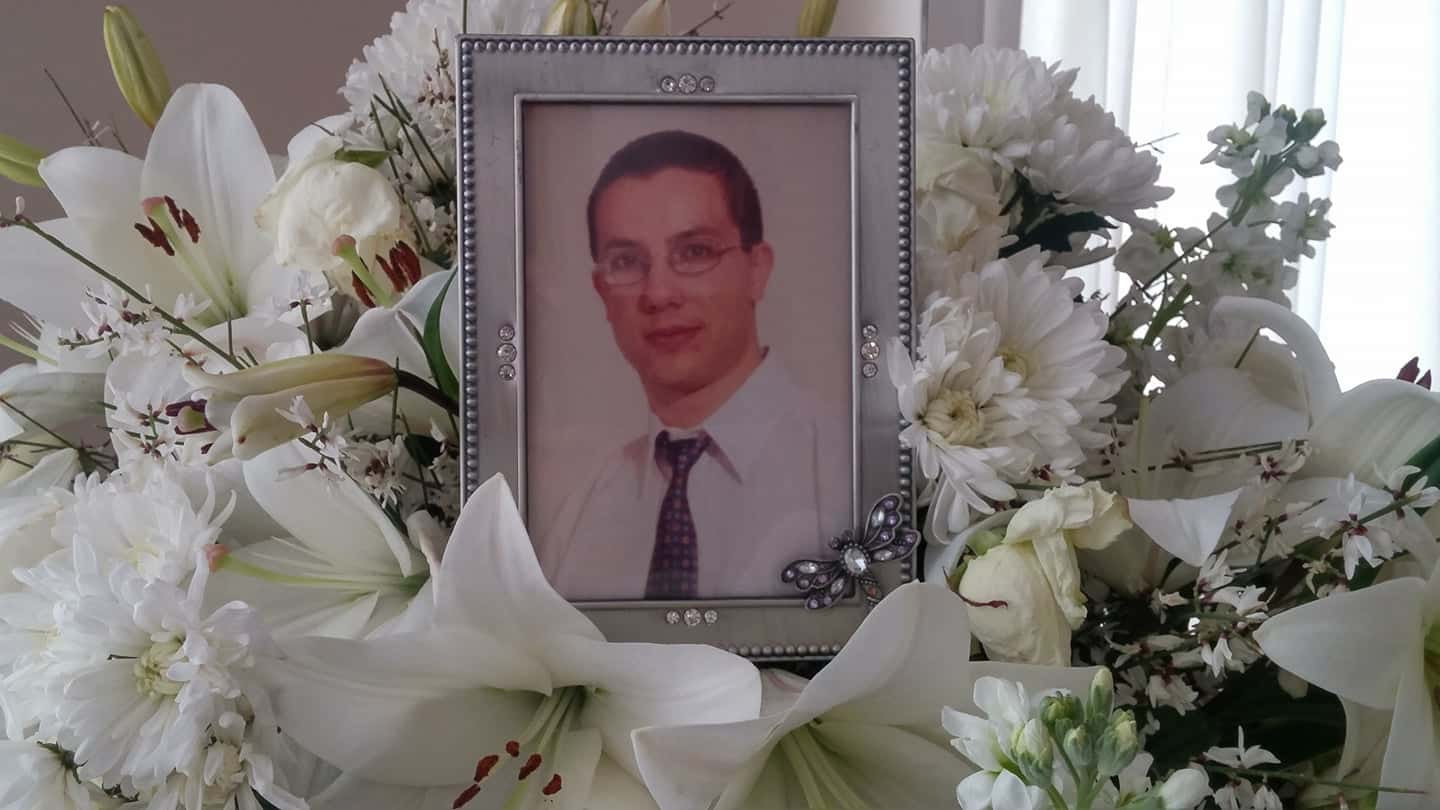2022 in review: progress of sorts in the case of Thanasis Nicolaou
2022 was the year in which the case of national guardsman Thanasis Nicolaou, whose lifeless body was found under a bridge in Limassol in 2005, entered the spotlight all over again.
In October 2021, attorney-general Giorgos Savvides appointed three independent investigators to reopen the suspicious death of the 26-year-old soldier.
The official explanation for Nicolaou’s death referred to suicide, a ruling that his mother Andriana Nicolaou had always rejected. She had always argued his death was the result of bullying while he was in the National Guard.
Savvides said the decision to appoint the investigators was based on the reports of two experts who had examined Nicolaou’s remains – after his mother won the right for his remains to be exhumed – and the findings of two previous inquests.
One of the two inquests was carried out by Greek pathologist Demetra Karayianni, who said she had found that the guardsman’ hyoid – a U shaped bone that supports the tongue – was fractured, and it had been inflicted before his death.
The pathologist added that the fracture could only have been caused by strangulation or hanging.
The investigators appointed by Savvides to look into the suspicious death were Achilleas Emilianides, Savvas Matsas, and Antonis Alexopoulos. However, the first one withdrew only three months after his appointment.
Almost a year after Savvides ordered the probe, Matsas and Alexandropoulos handed a 92-page report into the case. Even though the findings of the report were not made public, Matsas confirmed to several media outlets that criminal acts were committed in the case involving the death of the guardsman, adding, however, that it was only up to the AG to decide as to how to proceed.
That said, soon after handing the report, Matsas told state broadcaster CyBC that “in 50 years of service I have never witnessed such negligence.”
He went on explaining that the negligence mostly concerned the forensic examination of the body during the post-mortem, calling it “the moment in which the case examination started taking a turn for the worse.”
He also alluded to a cover-up.
“Too many omissions were made in the course of investigation by the police, which resulted in valuable time being lost and a proper and effective investigation not being carried out.”
“As a result, an incredibly serious offence was investigated as a minor offence by the police,” Matsas said.
Following his statements, the investigator was swiftly removed from the probe by the AG in October for revealing details of the investigation to the media.
The investigator’s remarks were substantiated by a report by CyBC pointing the finger at four individuals, also members of the army. Their names, however, were never made public.
The new findings were in line with an earlier judgement by the European Court of Human Rights (Echr) which stated that Cypriot police had bungled the initial investigation into the young soldier’s death. In fact, the decision to exhume Nicolaou’s body to carry new examination was taken after the Echr judgement on the case.
As expected, the two investigators’ report and Matsas’ interview made waves all over Cypriot media. The current chief of police Stelios Papatheodorou defended the operations of the police following the discovery of Nicolaou’s body in 2005, dismissing the suspicions of a possible cover-up.
“I don’t know what the rumours say, but I do not believe that the police at that time witnessed a murder and did not investigate it properly,” he said.
He did, however, admit that serious mistakes were made during the investigation and called for more sensitivity and professionalism in future similar cases.
At the end of September, police ordered a risk assessment on security issues to Panicos Stavrianos, the state pathologist who had ruled the death a suicide in 2005, in connection with the guardsman’s death
Through his lawyers, Stavrianos wrote a letter to Savvides, the justice minister and the chief of police expressing concern over ‘trial by media’ and by the two investigators, in relation to his conclusions in the case.
Although Savvides has not yet deliberated on the case and has not publicly stated that Nicolaou’s death was a result of foul play, rather than a suicide, Justice Minister Stephie Dracou in October said she was sorry it took 17 years for the soldier’s death to be properly investigated.
“As a citizen, as a mother, I would like to extend an apology to Thanasis’ mother,” Dracou said. “I am really sorry that this case is unfolding after 17 years. I wish we could go back.”
The justice minister pledged to do whatever is possible within the framework of her competences to help with the investigation.
The latest information is that police investigations on the guardsman’s death are at an advanced stage, with officials waiting for the results of the tests carried out on the sand found in his mouth.
Meanwhile, Nicolaou’s friends and relatives, and especially his mother Andriana, are still waiting for justice.
“Two years have passed and not a single arrest has been made so far,” his mother wrote on Facebook.
“Two years without anyone being punished and 17 years after a brutal crime that has been continuously covered up, the killers are still walking free and unpunished among us, as are the accomplices who covered it up.”







Click here to change your cookie preferences